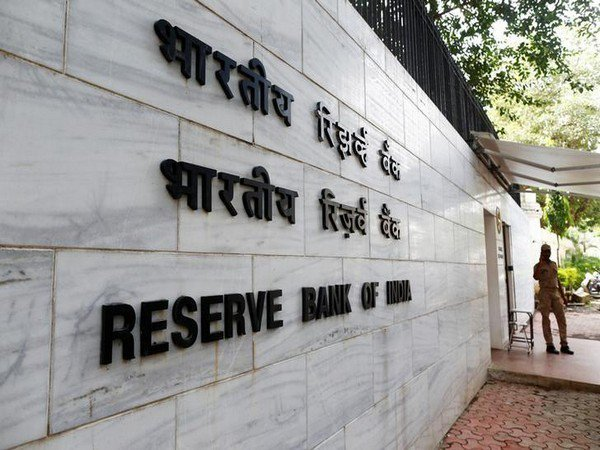RBI asks NBFCs to broad-base fundraising, reduce dependence on banks
The Reserve Bank on Wednesday asked non-bank finance companies to broad-base their fundraising to limit reliance on banks as it called for strengthening balance sheets through robust corporate governance and guarding against frauds and data breaches.According to the report Trend and Progress of Banking in India 2022-23 released by the RBI, the Indian banking system and NBFCs remain sound and resilient, backed by high capital ratios, strengthening asset quality and robust earnings growth.The consolidated balance sheets of scheduled commercial banks SCBs in 2022-23 expanded by 12.2 per cent, driven by credit to retail and services sectors.

- Country:
- India
The Reserve Bank on Wednesday asked non-bank finance companies to broad-base their fundraising to limit reliance on banks as it called for strengthening balance sheets through robust corporate governance and guarding against frauds and data breaches.
According to the report 'Trend and Progress of Banking in India 2022-23' released by the RBI, the Indian banking system and NBFCs remain sound and resilient, backed by high capital ratios, strengthening asset quality and robust earnings growth.
The consolidated balance sheets of scheduled commercial banks (SCBs) in 2022-23 expanded by 12.2 per cent, driven by credit to retail and services sectors. Deposit growth also picked up, although it trailed credit growth, the report said.
Looking ahead, it said, ''Given the increasing interconnectedness between banks and NBFCs, the latter should focus on broadbasing their funding sources and reduce overdependence on bank funding. Banks and non-banks both, need to bring in greater empathy in their customer services''. The concerted efforts are needed by all stakeholders to protect the banking and payments systems from the risks of fraud and data breaches emanating from cyber threats, the report added. With the adoption of new technology, it said, the risks of cyberattacks, data breaches and operational failures have also increased. Going forward, banks need to better recognise and address these technologies and cyber security risks to minimise potential vulnerabilities. The evolving nature of risks faced by the banking system necessitates building resilience through good governance and robust risk management practices.
The report emphasised that ''banks and NBFCs need to further strengthen their balance sheets through robust governance and risk management practices to meet the growing aspirations of the Indian economy''.
During 2022-23, it said, banks' balance sheets grew at a healthy pace, with both deposits and credit growth accelerating.
''Retail and services sector loans drove credit growth. Banks' financial conditions improved as they posted higher net interest margins and profits. Lower slippages and higher write-offs by banks improved asset quality across the board,'' as per the report.
With the increase in deposit rates catching up with the lending rates, it said, the profitability of banks may moderate going forward, while remaining robust. ''The share of unsecured advances in total advances has increased. In this context, the Reserve Bank's targeted macroprudential measures of November 2023 are aimed at ensuring sustained financial stability while supporting growth,'' the report noted. The GNPA ratio of banks fell to a decadal low of 3.9 per cent at the end of March 2023 and further to 3.2 per cent in September 2023.
As per the report, the improvement in asset quality of banks that began in 2018-19 continued during 2022-23, and even in the first half (April-September) of 2023-24, the gross non-performing assets (GNPA) ratio stood at 3.2 per cent.
Higher net interest income and lower provisioning boosted net interest margin (NIM) and profitability in 2022-23. During 2022-23 and 2023-24, it said, the Reserve Bank created an enabling environment for regulated entities (REs) to improve ease of doing business, while maintaining their focus on customer protection. The strides taken in digital finance infrastructure have made finance more inclusive, competitive, and robust while setting a global benchmark, the report said. In the highly uncertain geopolitical environment, REs will have to keep their focus on identifying and mitigating incipient stress, maintaining soundness and public confidence, and meeting the financing requirements of the country's developmental aspirations, it added. ''The Reserve Bank remains committed to preserving financial stability while enhancing efficiency in the financial system,'' it said.
With regard to NBFCs, the report said they have consolidated their position in the Indian financial sector by delivering credit and financial products to unbanked and underserved areas. NBFCs are steadily expanding their MSMEs portfolio, thereby addressing the credit requirements of the sector more actively and contributing to overall financial inclusion and economic growth. NBFCs' double-digit credit growth was driven by unsecured loans, which grew more than twice as fast as secured loans, it noted. In this regard, the Reserve Bank, as part of a calibrated and targeted macroprudential measure, has increased the risk weights on select retail loans by NBFCs and SCBs' credit to NBFCs, which is preemptive in nature and in the interest of overall sustainability. NBFCs remain well capitalised, with CRAR (capital adequacy ratio) well above the regulatory requirement.
As regards Housing Finance Companies, credit accelerated in 2022-23, mainly due to a post-pandemic shift in preference for home ownership, the report said.
(This story has not been edited by Devdiscourse staff and is auto-generated from a syndicated feed.)
ALSO READ
Celebrating Community Heroes: 2025 New Year Honours Recognize Over 30 Indian-Origin Professionals
India Pledges Support for Nurse Facing Death Penalty in Yemen
India Achieves Milestone with Successful Space Docking Mission
India Takes a Giant Leap with First Space Docking Launch
India's Renewable Energy Revolution: Powering Into the Future










